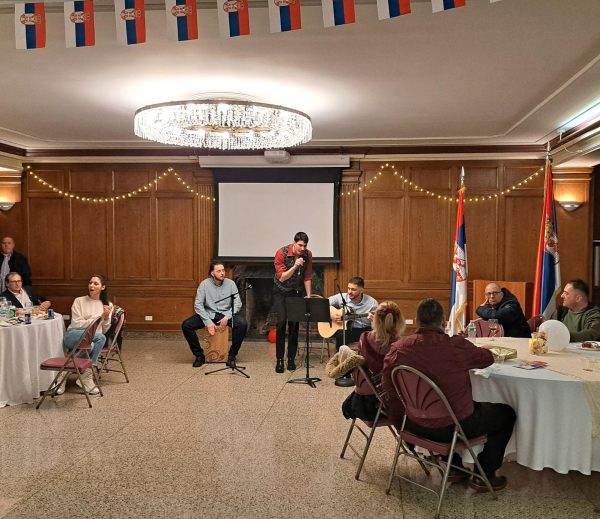Got Bard? Exploring Iona’s Shakespeare Newsletter
March 7, 2013
If sparking up conversations with students across campus, it would be hard-pressed to find a student who has heard of “The Shakespeare Newsletter.” More often than not, broaching the publication will elicit more confusion than anything else, especially after mentioning that it is produced on Iona’s campus itself. What is “The Shakespeare Newsletter”? Its editors describe it as a “lively and interesting miscellany of information, scholarship, reviews and opinion on William Shakespeare.”
The Newsletter was 40-years-old when Iona’s English Department took it over in 1991. First developed by Professor Louis Marder at the University of Illinois, Chicago Circle, the Newsletter has only grown and progressed in its over 20 years at Iona. Offering readers insightful reviews on books and performances, rigorous scholarship and “informed opinion on all things Shakespearean,” the Newsletter has grown to reach 37 countries and every continent with more than 2,000 subscribers. Under the Editorship of Professor Emeritus Thomas Pendleton, Professor of English John Mahon and Assistant Professor of English Thomas J. Moretti, the Newsletter is now published three times a year, providing subscribers with 120 pages of Shakespeare commentary.
Subscribers are not the only ones who benefit from the Newsletters’ publication either. Iona students gain internship opportunities and graduate assistantships, and the staff encourages students interested in gaining knowledge in publishing a special-interest journal to inquire about opportunities to work with the editors of the Newsletter. Moreover, members of the Iona community can obtain complimentary subscriptions to the newsletter and sample issues and can access archives in the Ryan Library.
The international presence of the Newsletter also represents the school and its dedication to scholarly pursuit around the globe. Mahon said, “carrying the College seal on the front page of every issue, the newsletter gives Iona a presence in libraries and universities around the world,” as well as in prestigious institutions such as the Bodleian Library at Oxford, The New York Public Library and the Folger Shakespeare Library in D.C.
Some may suggest that Shakespeare’s work has already received more than its fair share of critical attention and that it could not support continued scholarly work. Mahon said, however, that, “so long as there are new students, teachers, actors, directors and readers, [questions like] ‘How should Shakespeare be taught, or performed, or read’ will never lose relevance.”
Classic works “constantly attracts new approaches to interpretation” since critical focuses, such as feminism and performance, have gained particular importance in recent years. The Newsletter has tracked growing interest in biographical issues such as Shakespeare’s possible Catholicity or whether Stratford was behind some of his works.
The Newsletter also provides insights into what Moretti refers to as the “increasingly rich and expansive” nature of Shakespeare scholarship today. Developing trends, such as questions of “translation on- and off-stage in Europe and Asia, ways that dramatists like Shakespeare handled the religious tensions of the day and creative solutions when staging plays like ‘Merchant of Venice’ and ‘Othello’ [due to] their complicated representations of Jewish and Islamic identity.”
Though its readership is already substantial, the staff notes that there are potential readers out there who could benefit from the Newsletter, “most notably secondary school teachers around the world,” said Moretti. The staff has taken steps towards developing a digital archive and subscription option for both current and new subscribers, giving the Newsletter “a stronger online presence.”
The continued appreciation of the Newsletter seems to corroborate the editors’ conviction that “Shakespeare’s appeal is universal.”
“Better than most, Shakespeare gets us closer to the conflicts and contradictions of human identity and human relationships without resolving those conflicts [or] resetting those contradictions,” said Moretti. “Shakespeare presents them to us so that we can become aware of them and wrestle with them as and after we read or watch his plays. When Hamlet begins with ‘Who’s there?’ we’re meant to ask and look, too.”
Of all the questions students on campus might ask themselves–including “Shakespeare Newsletter? What’s that and what does it have to do with Iona?”–they might benefit by asking themselves questions teased out of Shakespeare’s work and its legacy in every thought-provoking issue of “The Shakespeare Newsletter.”
Interested in working for The Shakespeare Newsletter and getting your Master’s Degree paid for you? A graduate assistantship is available for the 2013-2014 school year. Contact [email protected] for more information.













